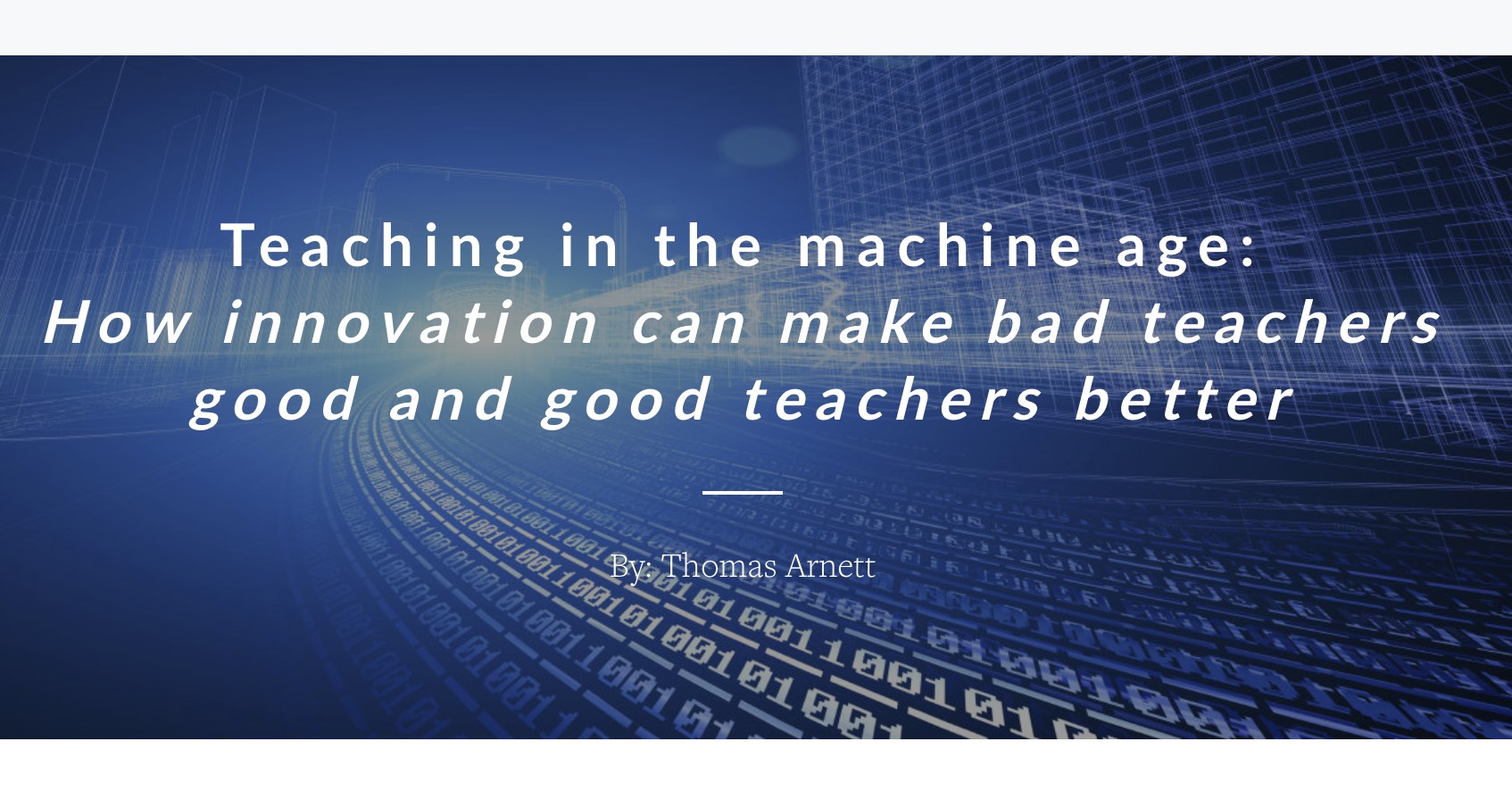How innovation can make bad teachers good and good teachers better
December 7, 2016
Teaching in the Machine Age
By: Thomas Arnett
As scientific understanding and artificial intelligence leap forward, many professions—such as law, accounting, animation, and medicine—are changing in dramatic ways. Increasingly, these advances allow non-experts and machines to perform tasks that were previously in the sole domain of experts, thus turning expert-quality work into a commodity. With new technologies displacing workers across many fields, what will be the likely impact on the teaching profession? Will machines replace teachers?
Despite the hype and fear, machines are unlikely to replace teachers anytime soon. Rather, they are poised to help overcome several structural barriers that make it difficult to ensure that an effective teacher reaches every student.
School systems face a number of challenges, including teacher shortages, a lack of clear methods for developing high-quality teachers, and teacher burnout and attrition, to name a few. And even the best teachers struggle to address the diverse learning needs of their students or find time to focus on developing students’ deeper learning and noncognitive skills amidst pressures to cover core instruction.